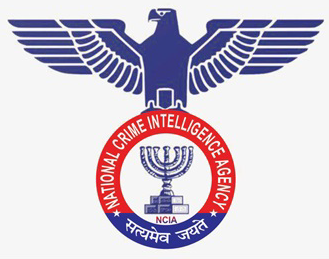Corporate Social Responsibility Rule In India CSR Rule in India: India`s new Companies Act 2013 (Companies Act) has introduced the provision for Corporate Social Responsibility (CSR). The concept of CSR rests on the ideology of give and take. Companies take resources in the form of raw materials, human resources etc from the society. By performing the task of CSR activities, the companies are giving something back to the society. Ministry of Corporate Affairs has notified Section 135 and Schedule VII of the Companies Act as well as the provisions of the Companies (Corporate Social Responsibility Policy) Rules, 2014 (CRS Rules) which has come into effect from 1 April 2014 and certain amendment in May 2016. APPLICABILITY: Section 135 of the Companies Act 2013 provides the threshold limit for applicability of the Corporate Social Responsibility to a Company:- net worth of the company to be Rs 500 crore or more; or turnover of the company to be Rs 1000 crore or more; or net profit of the company to be Rs 5 crore or more. Further as per the CSR Rules, the provisions of CSR are not only applicable to Indian companies, but also applicable to branch and project offices of a foreign company in India. Expenditure on CSR does not form part of business expenditure. CSR COMMITTEE AND POLICY: Every qualifying company requires spending of at least 2% of its average net profit (Profit before taxes) for the immediately preceding 3 financial years on CSR activities in India. Further, the qualifying company will be required to constitute a committee (CSR Committee) of the Board of Directors (Board) consisting of 3 or more directors. The CSR Committee shall formulate and recommend to the Board, a policy which shall indicate the activities to be undertaken (CSR Policy); recommend the amount of expenditure to be incurred on the activities referred and monitor the CSR Policy of the company. The Board shall take into account the recommendations made by the CSR Committee and approve the CSR Policy of the company. DEFINITION OF THE TERM CSR: The term CSR has been defined under the CSR Rules which includes but is not limited to:- Projects or programs relating to activities specified in the Schedule; or Projects or programs relating to activities undertaken by the Board in pursuance of recommendations of the CSR Committee as per the declared CSR policy subject to the condition that such policy covers subjects enumerated in the Schedule. Flexibility is also permitted to the companies by allowing them to choose their preferred CSR engagements that are in conformity with the CSR policy. The Board of a company may decide to undertake its CSR activities approved by the CSR Committee, through a registered society or trust or section 8 company with established track record of three years. ACTIVITIES UNDER CSR: The activities (in areas or subject, specified in Schedule VII) that can be done by the company to achieve its CSR obligations include:- Schedule VII of Companies Act 2013: Eradicating hunger, poverty and malnutrition, promoting health care including preventive health care and sanitation including contribution to the ‘Swachh Bharat Kosh’ set up by the Central Government for the promotion of sanitation and making available safe drinking water: Promoting education, including special education and employment enhancing vocation skills specially among children, women, elderly, and the differently abled and livelihood enhancement projects; promoting gender equality, empowering women, setting up homes and hostels for women and orphans; setting up old age homes, day care centres and such other facilities for senior citizens and measures for reducing inequalities faced by socially and economically backward groups; ensuring environmental sustainability, ecological balance, protection of flora and fauna animal welfare, agro forestry, conservation of natural resources and maintaining quality of soil, air and water including contribution to the ‘Clean Ganga fund’ set up by the Central Government for rejuvenation of river Ganga; protection of national heritage, and culture including restoration of buildings and sites of historical importance and works of art; setting up public libraries; promotion and development of traditional arts and handicrafts: Measures for the benefit of armed forces veterans, war widows and their dependents; Training to promote rural sports, nationally recognised sports, paralympic sports and Olympic sports; Contribution to the Prime Minister’s National Relief Fund or any other fund set up by the Central Government for socio-economic development and relief and welfare of the Scheduled Castes, the Scheduled Tribes, other backward classes, minorities and women; Contributions or funds provided to technology incubators located within academic institutions which are approved by the Central Government; Rural development projects; Slum area development. CORPUS: Contribution to Corpus of a Trust/ society/ section 8 companies etc. will qualify as CSR expenditure. (viii)Contribution to Corpus of a Trust/ society/ section 8 companies etc. will qualify as CSR expenditure as long as (a) the Trust/ society/ section 8 companies etc is created exclusively for undertaking CSR activities or (b) where the corpus is created exclusively for a purpose directly relatable to a subject covered in Schedule VII of the Act. (General circular no. 21/2014) GOVERNMENT SCHEME: CSR should not be interpreted as a source of financing the resource gaps in the Government schemes. Use of corporate innovations and managerial skills in the delivery of “public goods” is at the core of CSR implementation by the companies. CSR funds of companies should not be used as a source of funding Government projects. The Government has no role to play in the approving and implementing of CSR projects. MCA will provide the broad contours within which eligible companies will formulate their CSR policies, including activities to be undertaken and implement the same in right earnest. LOCAL AREA: For the purpose of spending the amount earmarked for Corporate Social Responsibility activities, the company shall not limit itself to local area or areas around it where it operates but shall select areas across the country. (Amendment bill 2016) Company may also choose to associate with 2 or more companies for fulfilling the CSR activities provided that they are


















































